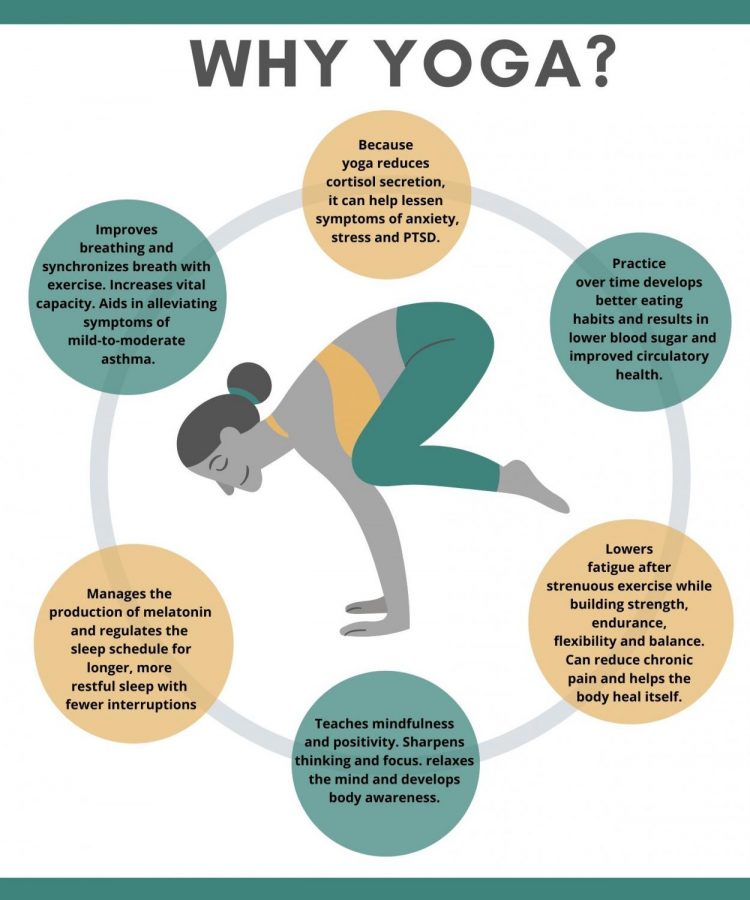Mental Benefits of Yoga: Enhancing Mind and Well-being
Yoga is not just a physical practice; it is a holistic approach that brings together the mind, body, and spirit. While many people are aware of the physical benefits of yoga, such as increased flexibility and strength, the mental benefits are equally significant. In this article, we will explore the various ways in which yoga can positively impact our mental well-being.
Reducing Stress and Anxiety
One of the primary mental benefits of yoga is its ability to reduce stress and anxiety. Through the practice of deep breathing, meditation, and gentle movements, yoga helps to activate the body’s relaxation response. This response, also known as the parasympathetic nervous system, counteracts the effects of the stress response and promotes a sense of calm and relaxation.
Studies have shown that regular yoga practice can significantly decrease levels of the stress hormone cortisol in the body. By reducing cortisol levels, yoga helps to alleviate symptoms of anxiety and stress, allowing individuals to experience a greater sense of mental well-being.
Improving Mental Clarity and Focus
In today’s fast-paced world, it is common to feel overwhelmed and mentally scattered. Yoga offers a sanctuary for the mind, allowing individuals to cultivate mental clarity and focus. Through the practice of mindful movement and breath awareness, yoga helps to quiet the mind and bring attention to the present moment.
Research has found that engaging in regular yoga practice can enhance cognitive function, including improved memory, attention, and concentration. By incorporating specific yoga techniques, such as meditation and pranayama (breathing exercises), individuals can sharpen their mental faculties and enhance their overall cognitive abilities.
Promoting Emotional Well-being
Yoga is not only beneficial for the mind but also for emotional well-being. The mind-body connection established through yoga allows individuals to become more attuned to their emotions and develop greater emotional intelligence. By cultivating self-awareness and self-compassion, individuals can better manage their emotions and respond to challenging situations with resilience and equanimity.
Several studies have shown that yoga can improve symptoms of depression and promote a positive mood. The combination of physical movement, breathwork, and mindfulness in yoga practice helps to release endorphins, the body’s natural feel-good hormones, which contribute to a sense of happiness and well-being.
Enhancing Self-Reflection and Mindfulness
Yoga provides a space for self-reflection and introspection, allowing individuals to develop a deeper understanding of themselves and their thoughts. Through the practice of mindfulness, individuals can observe their thoughts and emotions without judgment, cultivating a sense of inner peace and acceptance.
Regular yoga practice encourages individuals to be fully present in the moment and embrace the sensations of the body and breath. This heightened state of mindfulness can extend beyond the yoga mat and into daily life, enabling individuals to navigate challenges with greater clarity and self-awareness.

Yoga offers numerous mental benefits that can enhance our overall well-being. By incorporating yoga into our lives, we can reduce stress and anxiety, improve mental clarity and focus, promote emotional well-being, and enhance self-reflection and mindfulness. The holistic nature of yoga allows us to cultivate a healthy mind-body connection, leading to a more balanced and fulfilling life.
Frequently Asked Questions about the Mental Benefits of Yoga
1. How does yoga improve mental well-being?
Yoga improves mental well-being by reducing stress, anxiety, and depression levels, promoting relaxation, and enhancing overall mental clarity.
2. Can yoga help with managing stress?
Yes, practicing yoga regularly can significantly help in managing stress by activating the body’s relaxation response and calming the mind.
3. Does yoga improve focus and concentration?
Absolutely! Yoga involves mindfulness and concentration techniques that enhance focus, attention, and mental clarity.
4. Can yoga be beneficial for anxiety disorders?
Yes, yoga can be highly beneficial for individuals with anxiety disorders as it helps regulate the body’s stress response, promotes relaxation, and cultivates a sense of inner peace.
5. Does yoga help in reducing symptoms of depression?
Yes, yoga can be an effective complementary therapy for reducing symptoms of depression. It helps release endorphins, improves mood, and promotes a sense of well-being.
6. Can yoga improve sleep quality?
Indeed! Regular yoga practice can improve sleep quality by reducing insomnia, promoting relaxation, and calming the mind before bedtime.
7. Does yoga boost self-confidence?
Yes, yoga can boost self-confidence by promoting self-acceptance, self-awareness, and a positive body image. It also helps in cultivating a sense of inner strength and empowerment.
8. Can yoga help in managing anger and irritability?
Definitely! Yoga provides tools and techniques to manage anger and irritability by promoting emotional regulation, mindfulness, and a calm state of mind.
9. Does yoga improve overall mental resilience?
Yes, practicing yoga regularly improves overall mental resilience by enhancing coping mechanisms, reducing stress, and promoting emotional well-being.
10. Can yoga help in improving overall quality of life?
Absolutely! Yoga improves overall quality of life by promoting physical and mental well-being, reducing stress, and enhancing mindfulness and self-awareness.




